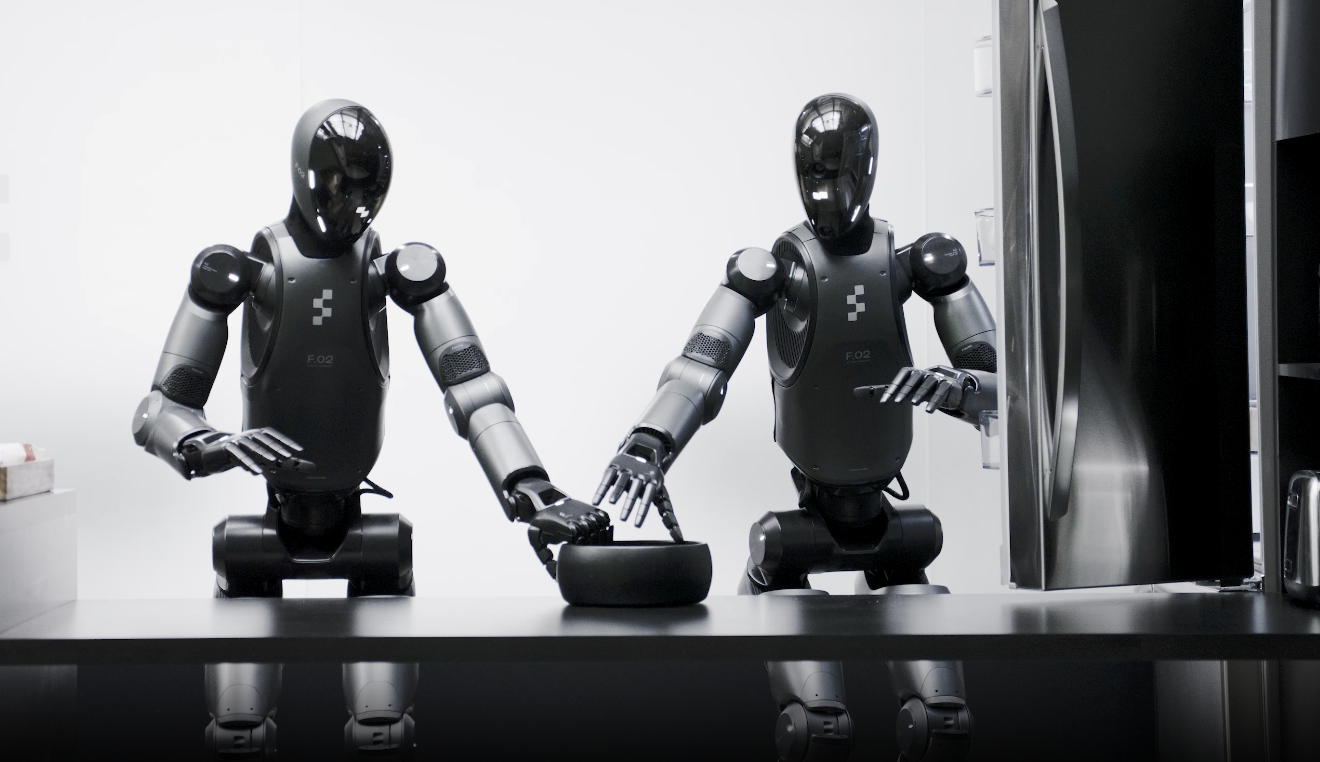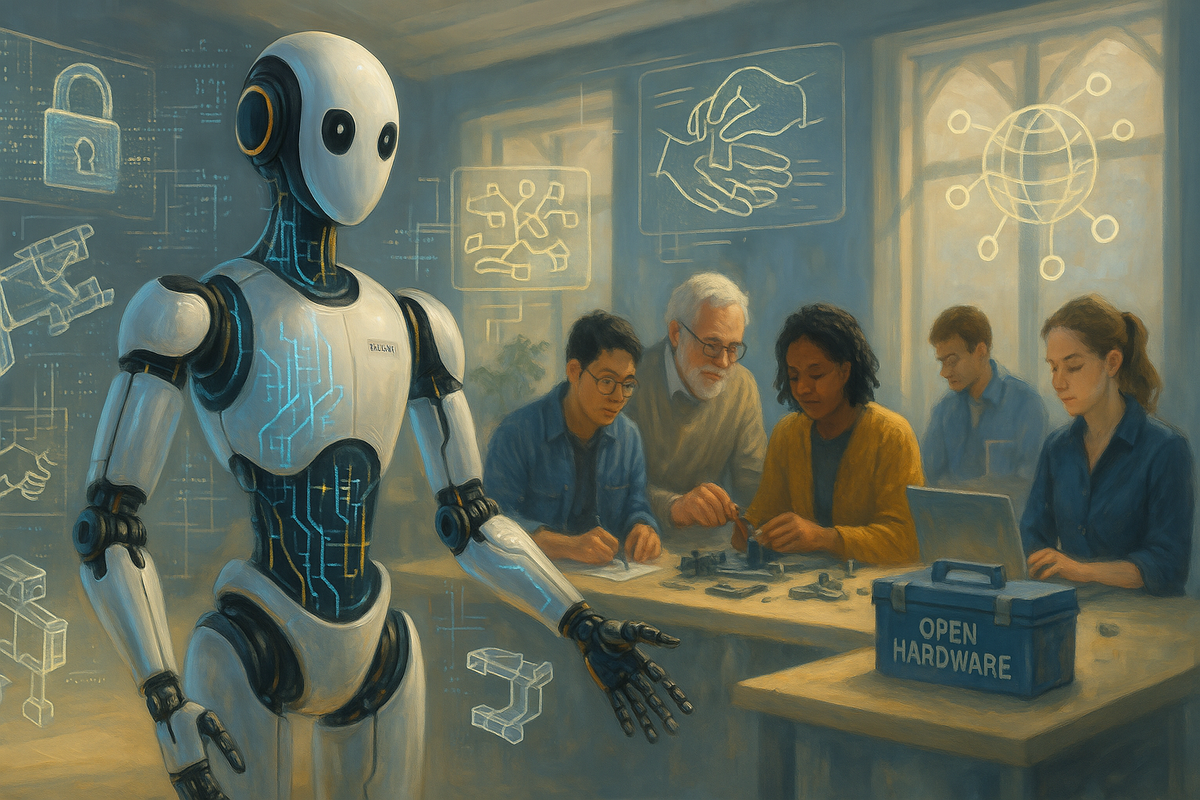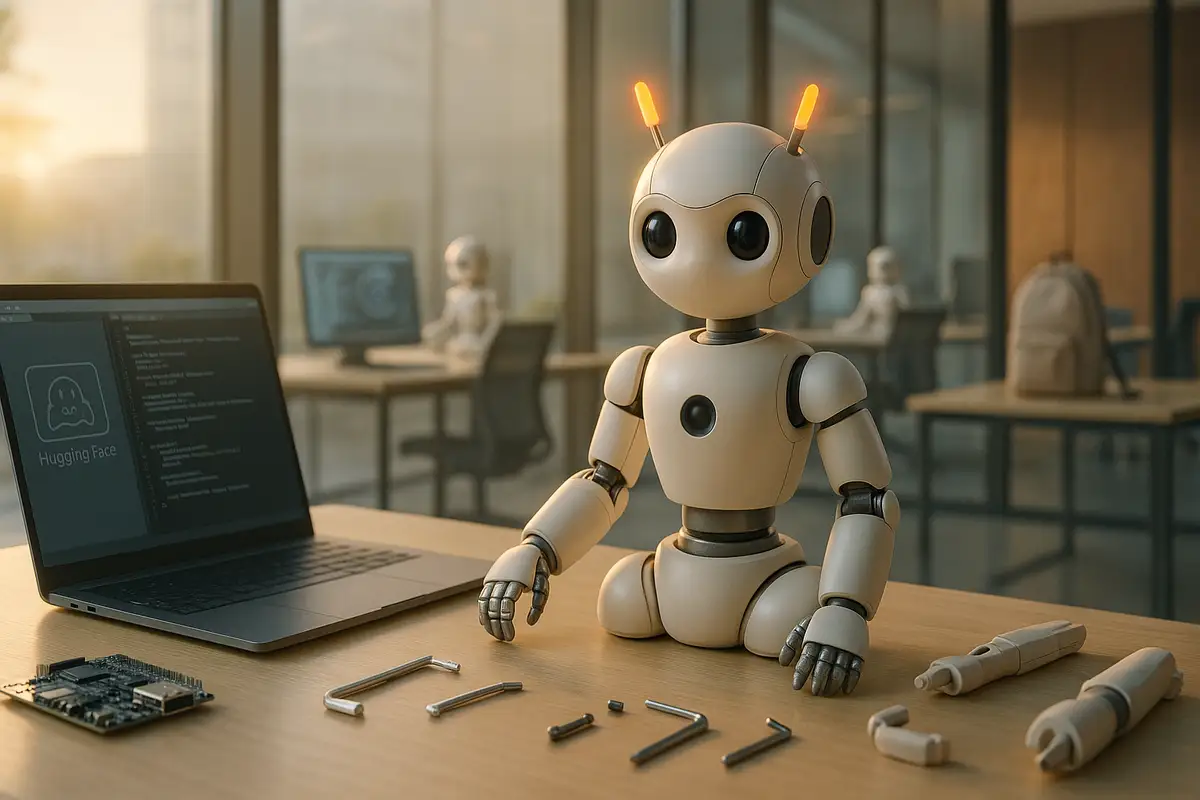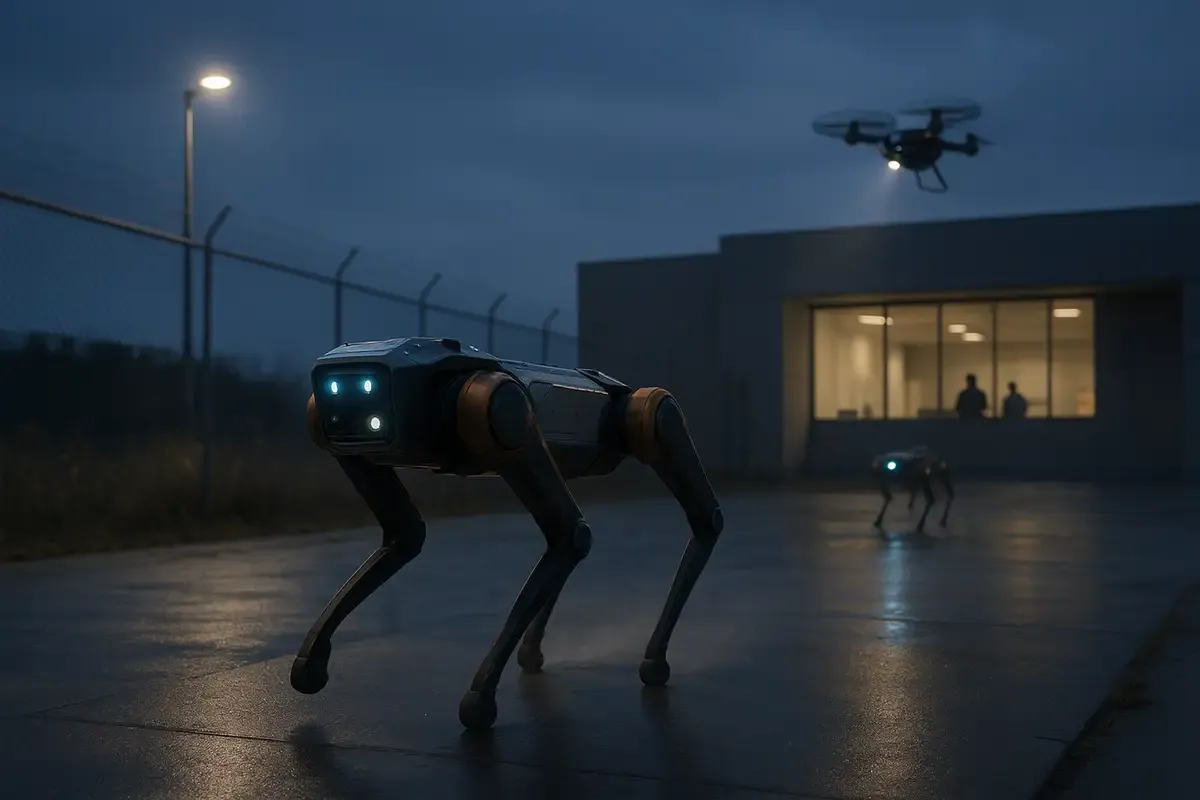💡 TL;DR - The 30 Seconds Version
💰 Philadelphia robotics company Asylon raises $26M Series B led by Insight Partners for robot security services that cost $100,000-$150,000 annually.
💥 Company nearly died in 2021 when demo drone crashed night before Fortune 500 showcase, but employee drove all night with replacement drone.
📊 Asylon's robot guards have completed over 250,000 security missions and DroneDog has walked more than 150,000 miles on patrol duty.
🚨 Corporate security spending surged after UnitedHealthcare CEO killing in December, creating perfect timing for robot guard services.
🤖 Company modifies Boston Dynamics Spot robots into DroneDogs and builds battery-swapping drones for comprehensive facility security coverage.
🚀 Unlike other robotics startups, Asylon focuses on practical security augmentation rather than replacing human guards entirely.
Philadelphia robotics company Asylon just closed a $26 million Series B. The funding's nice, but here's what caught my attention—how they almost went bust in 2021 and somehow turned disaster into success.
These guys take Boston Dynamics' famous Spot robot and turn it into DroneDog, basically a robo-security guard. It patrols facilities, sniffs out gas leaks, goes where humans probably shouldn't. They also build drones with robotic arms that swap their own batteries, which is pretty clever.
The whole thing gets sold as "robotic security-as-a-service" for $100,000 to $150,000 annually. Think of it as hiring a very expensive, very reliable security team that never calls in sick.
Insight Partners led this round. Veteran Ventures Capital, Allegion Ventures, and the GO PA Fund jumped in too. Makes sense when you consider corporate security budgets exploded after that UnitedHealthcare CEO shooting in December.
When MIT Graduates Actually Graduate
Most startup origin stories go like this: college dropouts, garage, sudden billions. Asylon's founders—Damon Henry, Adam Mohamed, and Brent McLaughlin—were MIT roommates who did something radical. They graduated.
Then they got real engineering jobs. Henry went to GE Aviation. Mohamed became CTO later. McLaughlin ended up COO after working at Boeing and Johns Hopkins Applied Physics Laboratory.
In 2015, Amazon announced drone delivery. Classic startup moment—the three friends looked at each other, quit their aerospace gigs, and started Asylon. By 2019, they'd landed Ford as their first customer.
Everything was going great. Until it wasn't.
The Demo From Hell
Picture this: Ford agrees to let you demo your drone tech at their facility. Fortune 500 companies sign up to watch. This is your shot at the big leagues.
The night before the demo, your drone crashes. Completely destroyed.
Henry watched his company's future disappear. No backup drone. No do-overs. Just the prospect of explaining to a bunch of Fortune 500 execs why there's nothing to see here.
One employee drove through the night with another drone. The founders had maybe hours to get it working. Somehow they pulled it off.
"The system flew consistently, perfectly all day long," Henry said. That demo landed them three Fortune 500 customers and their first Department of Defense contract. Same day.
Talk about bouncing back.
What 250,000 Missions Looks Like
Since dodging that bullet, Asylon's racked up serious numbers. Over 250,000 security missions completed. DroneDog alone has logged more than 150,000 miles on patrol duty.
They've got 65 employees now, systems in 15 states, and a 24/7 Robotic Security Operations Center watching everything. Citizens Financial Group has been using both DroneDog and Guardian drones for three years.
"They're not just a vendor, they're a critical part of how we protect our people and property," says John Gomes, the bank's physical security manager. That's the kind of customer quote that makes investors pay attention.
Why Robot Guards Make Sense Now
The timing couldn't be better. After the UnitedHealthcare CEO killing, companies started throwing money at executive protection and facility security. Robot guards don't take vacation, don't need health insurance, and can handle dangerous situations without hazard pay.
DroneDogs run preset patrol routes or respond to alarms using AI. Pair them with Guardian drones and you get air-and-ground coverage that plugs into existing security systems. The robots handle routine stuff while human guards focus on real threats.
Henry had met all his Series B investors at some New York Tech Week event the summer before. When fundraising time came, those connections helped. "I happen to have met every investor that's in the round at that event," he said.
Lucky networking, or smart relationship building? Probably both.
The Pandemic Changed Everything
Before 2020, most companies thought robotic security was science fiction. The pandemic shifted that thinking fast. Labor shortages, health concerns, rising costs—suddenly automated solutions looked pretty attractive.
Asylon's service model helps here. Instead of buying robots and hiring specialists, customers get managed service. Asylon handles maintenance, FAA compliance, software updates, operations. Companies just get the security coverage without the headaches.
The robotics market matured too. Boston Dynamics' Spot platform actually works reliably. Drone tech advanced while costs dropped. AI can handle routine tasks that needed human babysitting just a few years back.
What's Next for Robot Security
This Series B money goes toward expanding engineering, operations, and sales teams. They want to accelerate product development and build deeper partnerships in defense, logistics, and critical infrastructure.
Before this round, they'd only raised about $21 million plus some government grants. Total funding now hits roughly $45 million. That's modest compared to other robotics companies, but apparently enough to prove the concept works.
Asylon found a sweet spot between high-tech robotics and practical security needs. They're not building humanoid robots or trying to replace every human guard. They're just giving existing security teams better tools that work reliably.
The founders learned something important during that 2021 near-disaster. Reliability beats flashy features. Customer trust takes years to build, seconds to destroy. Sometimes the best tech stories start with complete failures.
And sometimes an employee driving all night to save your demo turns out to be the most important hire you'll ever make.
Why this matters:
• Corporate security spending is surging, but finding reliable human guards gets harder and more expensive every year—robots solve both problems while working 24/7 without overtime
• Asylon proved that even spectacular failures can become success stories if you focus on solving real problems instead of chasing the latest tech trends
❓ Frequently Asked Questions
Q: How much does Asylon's robot security cost compared to human guards?
A: Asylon charges $100,000-$150,000 annually, roughly the same as hiring one full-time security guard with benefits. But robots work 24/7 without breaks, sick days, or overtime pay, effectively providing three shifts of coverage for the price of one.
Q: Do customers buy the robots or rent them as a service?
A: It's a managed service model. Customers don't buy robots or hire specialists. Asylon handles everything—maintenance, FAA compliance, software updates, and 24/7 monitoring from their operations center. Companies just get the security coverage.
Q: What modifications does Asylon make to Boston Dynamics' Spot robot?
A: They add their proprietary PupPack hardware and DroneIQ software. This transforms Spot into a security guard that can run preset patrol routes, respond to alarms automatically, detect gas leaks, and integrate with existing security systems.
Q: Who are Asylon's main competitors in robot security?
A: The robot security market is still emerging. Most competitors focus on either ground robots or drones, not both. Asylon's advantage is combining air and ground coverage with 24/7 human monitoring, rather than selling standalone robots.
Q: How reliable are these robot systems in real security situations?
A: Asylon has completed over 250,000 missions with DroneDog walking 150,000+ miles. Citizens Financial Group has used both systems for three years and calls them reliable. The 24/7 operations center monitors all deployments for immediate response to issues.
Q: What types of facilities use robot security guards?
A: Financial institutions like Citizens Financial Group, Fortune 500 corporate campuses, defense facilities, and critical infrastructure sites. Asylon operates across 15 states, from urban campuses to remote industrial facilities in various climates.
Q: How many robots does a typical security installation have?
A: This varies by facility size and needs. The service combines ground patrols via DroneDogs with aerial coverage from Guardian drones. Sites get coordinated air-and-ground coverage that integrates with existing cameras and alarm systems.
Q: Why did Asylon raise so little funding compared to other robotics companies?
A: At $45 million total funding, they're modest compared to robotics companies that raise hundreds of millions. But they focused on proving the business model works profitably before scaling, rather than burning cash to grow fast.














